Earth 2100: Scenarios of Complex Futures Speakers
From Santa Fe Institute Events Wiki
SFI ACtioN Applied Topical Meeting
May 22, 2019
Harvard University Center for the Environment
Room 440
26 Oxford Street
Cambridge, MA 02138
Speakers & Discussants Include:
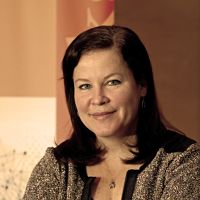
Putnam Investments and Santa Fe Institute
Katherine Collinsis the first Head of Sustainable Investing at Putnam Investments, Founder of Honeybee Capital, the precursor to Honeybee Capital Foundation, and a trustee of the Santa Fe Institute.
After many years serving as head of research and portfolio manager at Fidelity Investments, Katherine set out to re-integrate her investment philosophy with the broader world, traveling as a pilgrim and volunteer, earning her MTS degree at Harvard Divinity School, and studying biomimicry and the natural world as guides for investing in an integrated, regenerative way, beneficial to our communities and our planet. Katherine is author of The Nature of Investing, and her closest neighbors in Massachusetts are several thousand honeybees.
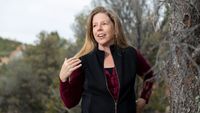
Santa Fe Institute
Jennifer Dunne is the Vice President for Science at the Santa Fe Institute, where she joined the faculty in 2007. Her research uses cross-system analysis and computational modeling to identify fundamental patterns and principles of ecological network structure and dynamics at multiple spatial and temporal scales. She uses this framework to explore the coexistence of species and ecological robustness, persistence, and stability, with a current focus on coupled natural-human systems and paleobiological systems. Dunne studied philosophy at Harvard, Ecology and Systematic Biology at San Francisco State University, and Energy and Resources at UC Berkeley, and was named a Fellow of the Ecological Society of America in 2017.
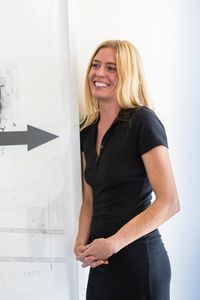
Santa Fe Institute
Jessica Flack is a professor at SFI where she runs the Collective Computation Group. They work on fundamental problems in evolutionary theory concerning collective behavior, collective computation, and collective intelligence—at all levels of biological organization—from societies of cells to societies of individuals to machine-human hybrid societies. Her particular interests are in the role of collective computation/intelligence in the origin of space and time scales and in the emergence of robust structure and function in nature and society. She is fascinated with the idea that components in adaptive systems construct their macroscopic worlds through collective coarse-graining in evolutionary and/or learning time.
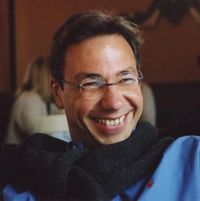
Harvard Medical School and Santa Fe Institute
Walter Fontana is a Professor of Systems Biology at Harvard Medical School and a member of SFI's Science Steering Committee. Trained as a chemist, mentored in theoretical molecular biology by Peter Schuster (Vienna), educated in evolutionary biology by Leo Buss (Yale), self-taught in computer science and charmed by the social sciences through John Padgett (Chicago), Walter has straddled many divides and taken risks in pursuing a professional trajectory shaped by the desire for a broadly engaging cross-disciplinary environment more than by career safety. He moved from the Santa Fe Institute to Harvard Medical School in September 2004. In seeing the opportunities that quantitative thinking and technology bring to experimental biology, the Fontana Lab pursued a theoretical and an experimental agenda that were deliberately distinct from each other. Having achieved a significant experimental milestone, the lab returned to all-computational and theoretical research in 2017.
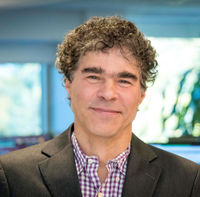
Yale University and Santa Fe Institute
John Geanakoplos is the James Tobin Professor of Economics at Yale University and an External Faculty member of the Santa Fe Institute, where he is Chairman of the Science Steering Committee. He received his B.A. in Mathematics from Yale University in 1975 (summa cum laude), his M.A. in Mathematics and his Ph.D. in Economics under Kenneth Arrow and Jerry Green from Harvard University in 1980. He started as an Assistant Professor in Economics at Yale University in 1980, becoming an Associate Professor in 1983, Professor in 1986, and the James Tobin Professor of Economics in 1994. From 1996-2005 he was Director of the Cowles Foundation for Research in Economics. He was a co-founder in 1992, and is still currently co-director, of the Hellenic Studies Program at Yale. He was elected a fellow of the Econometric Society in 1990 and of the American Academy of Arts and Sciences in 1999. He was awarded the Samuelson Prize in 1999, and was awarded the first Bodossaki Prize in economics in 1994 (for the best economist of Greek heritage under 40). In 1990-1991 and again in 1999-2000 he directed the economics program at the Santa Fe Institute. He spent terms as visiting professor at MSRI in the University of California, Berkeley, at Churchill College, Cambridge, at the University of Pennsylvania, at Harvard, at Stanford, and at MIT. From 1990-1994 he was a Managing Director and Head of Fixed Income Research at Kidder, Peabody & Co. He was one of the founding partners in 1995 of Ellington Capital Management, where he remains a partner. In 1970 he won the United States Junior (< 20) Open Chess Championship. One of his current research topics is the leverage cycle.

Accenture
Syed Ghazi is the Innovation Capability Lead at Accenture and a member of SFI's Applied Complexity Network. At Accenture, he advises the c-suite on finding new pockets of untapped value. He is interested in chaos, cognition, linguistics, evolution, psychedelics, and shark domestication among other things. However, his day job is to help corporations find growth in an increasingly uncertain world. He also leads Accenture’s Behavioural Science practice out of the firm’s Global Centre for Innovation in Dublin (The Dock).
Syed held two world records by the time he was 14. He studied Cognitive Science at University of Toronto and soon went on to start his first business. He has a lot of ideas but only a small fraction actually translate into profitable businesses. He has built and sold two companies. In Silicon Valley vernacular, he continues to have “learning” experiences at taking new ideas to market on a regular basis.
Syed lives with his wife and daughter in London.
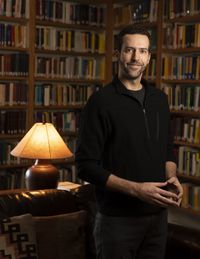
Washington University, Brookings Institution and Santa Fe Institute
Ross Hammond is the Betty Bofinger Brown Distinguished Associate Professor of Public Health and Social Policy at Washington University in St Louis, Director of the Center on Social Dynamics & Policy and Senior Fellow in Economics at the Brookings Institution, and an External Professor at the Santa Fe Institute. His research applies complex systems science modeling methodologies to problems in social science and health. Current research topics include obesity etiology and prevention, food systems, tobacco control, health disparities, and early childhood development. Hammond has published extensively in general science and disciplinary journals across social science, biology, medicine, and public health, and his work has been featured in The Atlantic Monthly, Scientific American, New Scientist, Salon, and major news media. Professor Hammond currently serves in policy advisory roles on the Food and Nutrition Board of the U.S. National Academies of Science, as a Special Government Employee at the FDA Center for Tobacco Products, as a federally appointed member of the Advisory Council on Minority Health and Health Disparities at the National Institutes of Health (NIH), and as a member of the Lancet Commission on Obesity. Hammond has taught at Harvard School of Public Health, University of Michigan School of Public Health, and the NIH, and is on the editorial board of the journals Behavioral Science and Policy and Childhood Obesity.

Takeda Pharmaceuticals
Hui Huang is Head of Oncology Global Outcomes Research at Takeda Pharmaceuticals, Cambridge, MA, and a member of SFI's Applied Complexity Network. At Takeda, Dr Huang’s group is responsible for evidence generation activities that capture patient needs and value expectations to support clinical development, product pricing/reimbursement and patient access. She has nearly 20 years of biopharma experiences across both R&D and commercial organizations. Dr. Huang has extensive publications in different discipline of data sciences such as Computational Biology/Bioinformatics, Health Economics and Outcomes Research. She has special interest in multidisciplinary innovation that uses Real-World Evidence (RWE) to transform drug development process and decision making in healthcare industry. She also served as a scientific reviewer for “Value in Health” and as a Scientific Research Reviewing Committee Member for the International Society of Pharmacoeconomics and Outcome Research. Dr. Huang received her PhD from Syracuse University, and MBA from Yale University.
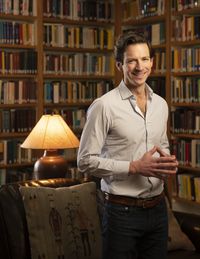
University of Massachusetts Lowell and Santa Fe Institute
John Kaag is Professor and Chair of Philosophy at the University of Massachusetts Lowell and a 2019 Miller Scholar at SFI. Kaag believes, following thinkers like William James, that philosophy should go where the interesting questions are. This belief has drawn him to a diverse number of topics--from the biological origins of creativity in Thinking through the Imagination (Fordham 2014), to the ethics of drone warfare in Drone Warfare (Polity 2016), to the relationship between philosophy and memoir in his most recent books. He is author of American Philosophy: A Love Story (Farrar, Straus and Giroux 2016), which was named an NPR Best Book of 2016 and New York Times Editor's Choice. His Hiking with Nietzsche, out in September with FSG, is the "dark" sequel to American Philosophy: A Love Story and is, among other things, an attempt to read Nietzsche's iconoclasm into adulthood.
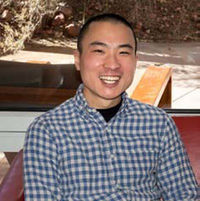
Santa Fe Institute
Albert Kao is a Baird Scholar and Omidyar Postdoctoral Fellow at the Santa Fe Institute. Prior to SFI, he spent three years at Harvard University as a James S. McDonnell postdoc fellow. He received his Ph.D. in 2015 from the Department of Ecology and Evolutionary Biology at Princeton University, under the supervision of Prof. Iain Couzin (now at the Max Planck Institute for Ornithology). He received his A.B. in Physics with an emphasis in Biophysics from Harvard College in 2007.
Using a range of experimental and theoretical tools, he studies the mechanisms and adaptiveness of collective behavior across biological systems, including slime molds, fish schools, ant colonies and human groups.
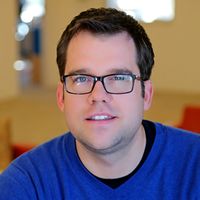
Santa Fe Institute
Chris Kempes is a professor at the Santa Fe Institute working at the intersection of physics, biology and the earth sciences. Using mathematical and computational techniques, he studies how simple theoretical principles inform a variety of phenomena ranging from major evolutionary life-history transitions, to the biogeography of plant traits, to the organization of bacterial communities. He is particularly interested in biological architecture as a mediator between physiology and the local environment.
Chris generally focuses his work on biological architecture—which may include phenomena ranging from explicit biological morphology to metabolic and genetic network structure—as an intermediate between organism physiology and environmental conditions. Mathematical and physical theories lie at the heart of his methodologies to predict how evolution has shaped architecture and how this, in turn, forms a foundation for reliable predictions of environmental response and interaction. His work spans the scales of genetic information architecture to the morphology of microbial individuals and communities to the regional variation of plant traits and their feedback with climate and available resources.
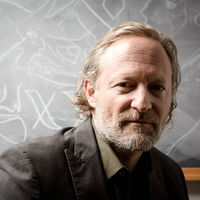
Santa Fe Institute
David Krakauer is the President and William H. Miller Professor of Complex Systems at Santa Fe Institute. His research explores the evolution of intelligence on earth. This includes studying the evolution of genetic, neural, linguistic, social and cultural mechanisms supporting memory and information processing, and exploring their shared properties. He served as the founding Director of the Wisconsin Institute for Discovery, the Co-Director of the Center for Complexity and Collective Computation, and Professor of mathematical genetics all at the University of Wisconsin, Madison. David has been a visiting fellow at the Genomics Frontiers Institute at the University of Pennsylvania, a Sage Fellow at the Sage Center for the Study of the Mind at the University of Santa Barbara, a long-term Fellow of the Institute for Advanced Study in Princeton, and visiting Professor of Evolution at Princeton University. In 2012 Dr. Krakauer was included in the Wired Magazine Smart List as one of 50 people "who will change the World.” In 2016 Krakauer was included in Entrepreneur Magazine’s visionary Leaders advancing global research and business.

MIT and Sante Fe Institute
Seth Lloyd is the Nam Pyo Suh Professor of Mechanical Engineering at the Massachusetts Institute of Technology and External Professor of SFI, where he sits on the Science Board. He is the director of the WM Keck Center for Extreme Quantum Information Theory at MIT and the director of the Program in Quantum Information at the Institute for Scientific Interchange. Lloyd earned his A.B. degree in Physics from Harvard University, his Masters of Advanced Study in Mathematics and M.Phil. in History and Philosophy of Science from Cambridge University, and his Ph.D. in Physics from Rockefeller University. After postdoctoral fellowships at Caltech and at Los Alamos, he joined the MIT faculty in 1994.
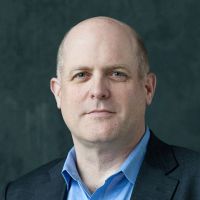
Harvard University and Santa Fe Institute
Daniel Schrag is the Sturgis Hooper Professor of Geology at Harvard University, Professor of Environmental Science and Engineering, Director of the Harvard University Center for the Environment, SFI Science Board Co-chair, and member of SFI's Science Steering Committee.
Schrag studies climate and climate change over the broadest range of Earth history. He is particularly interested in how information on climate change from the geologic past can lead to better understanding of anthropogenic climate change in the future. In addition to his work on geochemistry and climatology, Schrag studies energy technology and policy, including carbon capture and storage and low-carbon synthetic fuels.
Among various honors, Schrag is the recipient of the James B. Macelwane Medal from the American Geophysical Union and a MacArthur Fellowship. Schrag earned a B.S. in geology and geophysics and political science from Yale University and his Ph.D. in geology from the University of California at Berkeley. He came to Harvard in 1997 after teaching at Princeton, and he served on President Obama's Council of Advisors on Science and Technology.

Santa Fe Institute
Ashley Teufel is a Complexity Postdoctoral Fellow and Omidyar Fellow at the Santa Fe Institute. The goal of Ashley's research is to uncover how the physio-chemical laws that govern all biochemical reactions led to the emergence and expansion of complex life. Using a combination of computational and theoretical approaches Ashley's research is focused on the functional diversification of biological systems across multiple layers of organization. Thus far her research has centered on the evolution of proteins, duplicated genes, and metabolic pathways. In her future work, she plans to continue to study these molecular systems while also extending her work to examine how changing environments and ecological interactions further shape functional diversification.
Prior to joining SFI, Ashley was a postdoctoral researcher at The University of Texas at Austin in the Department of Integrative Biology. She holds a Ph.D. in Molecular Biology from The University of Wyoming, and B.S. degrees in Computer Science and Mathematics from New Mexico State University.
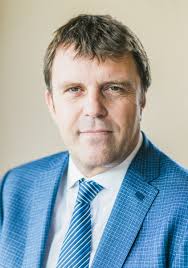
We Mean Business
Nigel Topping serves as CEO of We Mean Business and is a member of SFI’s Applied Complexity Network. We Mean Business is a coalition of organizations working on climate change with thousands of the world’s most influential businesses and investors. WMB harnesses business leadership to support the implementation and policies that accelerate action on climate change.
Topping has 18 years experience in the private sector, consulting for and running manufacturing businesses. Previously, he was executive director of CDP (formerly the Carbon Disclosure Project). Prior to joining CDP, he spent 18 years in the manufacturing sector, most recently as a member of the MBO team and senior vice president of supply chain for an automotive component manufacturing company with a turnover of $800 million and facilities all over the world.
Topping has extensive international experience, having worked in Spain, the USA, Germany and the UK at various times in his career. He also has significant experience in emerging markets, having led projects in Brazil, India and China. He holds a BA in Mathematics from Cambridge University and an MSc in Holistic Science from Schumacher College.
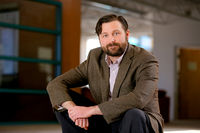
Santa Fe Institute
Will Tracy is the Vice President for Applied Complexity at the Santa Fe Institute. He came to SFI from Rensselaer Polytechnic Institute, where he was the undergraduate program director for the Lally School of Management and a faculty member. He was formerly the Associate Director of SFI’s Complex Systems Summer School, Beijing. Before entering academia, he was a Junior Professional Associate at The World Bank, where he focused on Eastern Europe and Central Asia. Will also has private sector and entrepreneurial experience in the US, China, and India. He holds a Ph.D. in management with a certificate in human complex systems from UCLA.
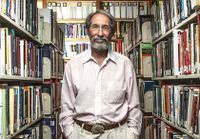
Santa Fe Institute
Geoffrey West is the Shannan Distinguished Professor and former President of the Santa Fe Institute and Associate Senior Fellow of Oxford University’s Green-Templeton College. His BA is from Cambridge and his PhD from Stanford, where he later returned to join the faculty. West is a theoretical physicist whose primary interests have been in fundamental questions ranging from the elementary particles and their cosmological implications to universal scaling laws in biology and a quantitative science of cities, companies and global sustainability. His work is motivated by the search for “simplicity underlying complexity.” His research includes metabolism, growth, aging and lifespan, sleep, cancer and ecosystems, the dynamics of cities and companies, rates of growth and innovation, and the accelerating pace of life.
West has given many lectures world-wide including Davos and TED. Among his awards are the Mercer Prize from the Ecological Society of America, the Weldon Prize for Mathematical Biology, the Glenn Award for Aging Research and the Szilard Award from the American Physical Society. He has been featured in many publications world-wide including the New York Times, Financial Times, Wired, Time, The Economist, Nature and Science and participated in television productions including Nova, National Geographic and BBC. He is the author of the best-selling book Scale. His public service includes serving on the Council of the World Economic Forum. His work was selected as a breakthrough idea by the Harvard Business Review in 2006 and he was on Time magazine’s list of “100 Most Influential People in the World” in 2007.
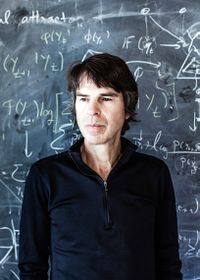
Santa Fe Institute
David Wolpert is a Professor at the Santa Fe Institute. Heis an IEEE fellow, is the author of three books and more than 200 papers, has three patents, is an associate editor at more than half a dozen journals, and has received numerous awards. He has more than 17,000 citations in a wide range of fields, including physics, machine learning, game theory, information theory, the therodynamics of computation, and distributed optimization. In particular, his machine learning technique of stacking was instrumental in both winning entries for the Netflix competiton, and his papers on the no free lunch theorems jointly have more than 7,000 citations.
He is a world expert on using nonequilibrium statistical physics to analyze the thermodynamics of computing systems; extending game theory to model humans operating in complex engineered systems; exploiting machine learning to improve optimization; and Monte Carlo methods.
Previously he was the Ulam Scholar at the Center for Nonlinear Studies at Los Alamos National Laboratory, and before that he was at the NASA Ames Research Center and was a consulting professor at Stanford University, where he formed the Collective Intelligence Group. He has worked at IBM and at a data mining startup, and he is external faculty at numerous international institutions. His degrees in physics are from Princeton University and the University of California.

